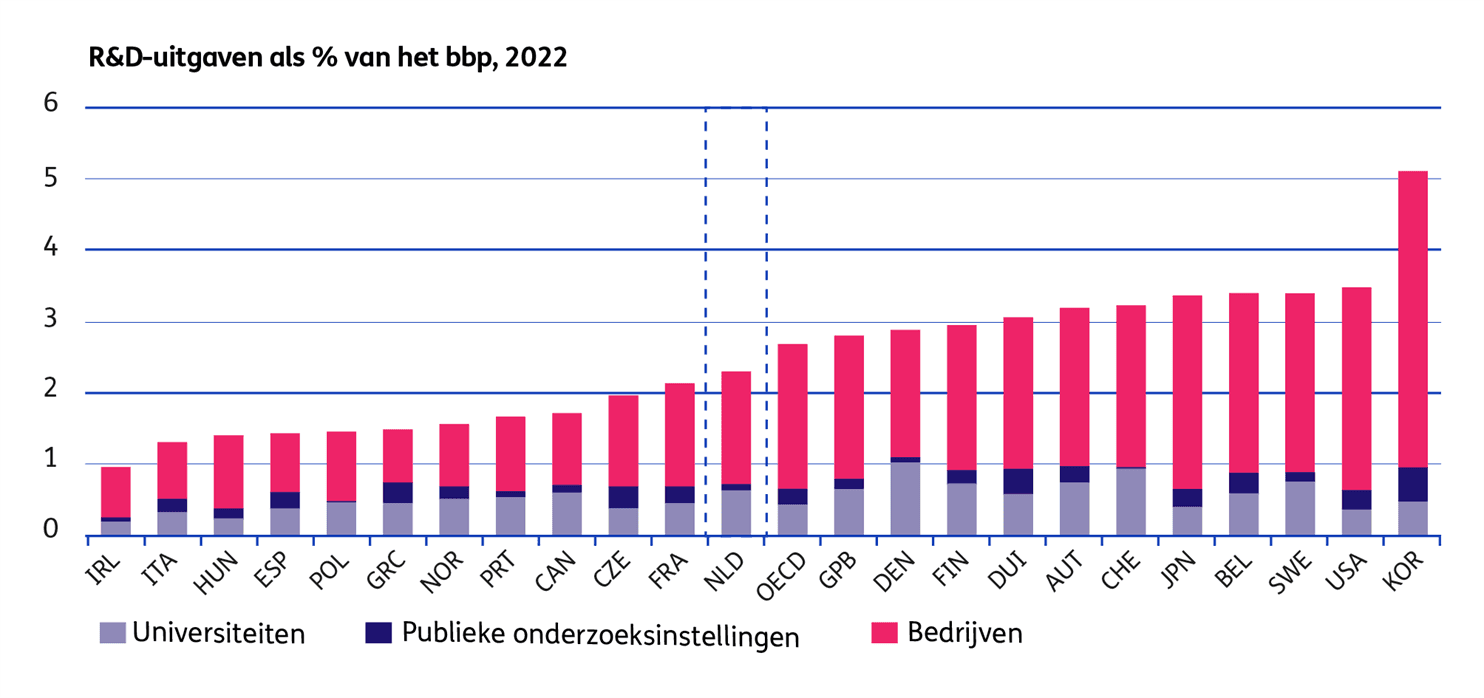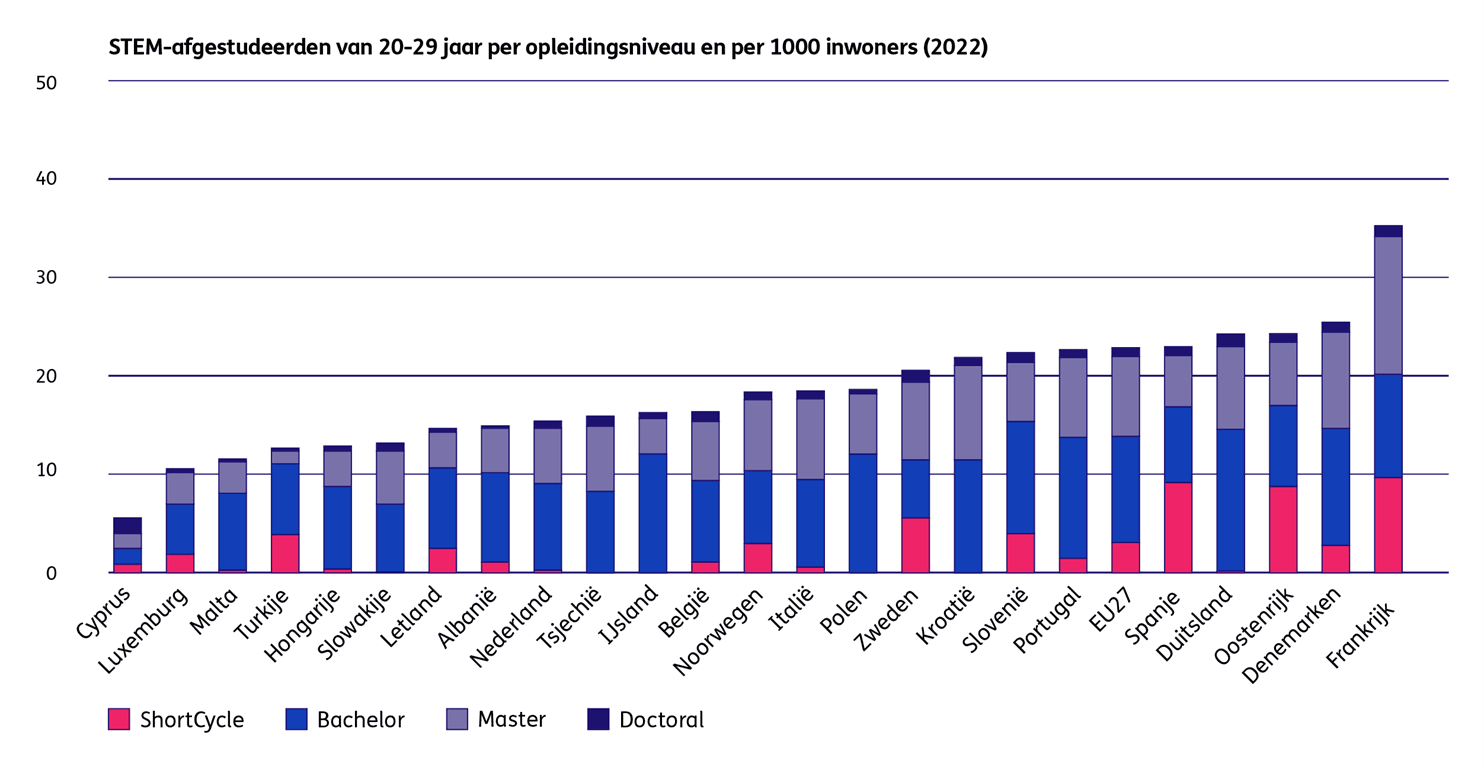Deindustrialization and faltering innovation threaten prosperity
According to the TNO report, a cheap, reliable, and clean energy supply is essential for future prosperity.
Published on April 26, 2025
Team IO+ selects and features the most important news stories on innovation and technology, carefully curated by our editors.
The Netherlands is in danger of losing its position as an innovative country. TNO is sounding the alarm: without radical choices regarding the investment climate, energy supply, and technology development, our future prosperity is under pressure.
The Netherlands is at a crossroads, according to a report by TNO commissioned by the House of Representatives. Industry, which accounts for half of exports and a large share of private R&D spending, is creaking under structural problems such as network congestion, regulatory pressure, and high energy costs. At the same time, too few start-ups are succeeding in growing into new industrial champions. “The Netherlands is a knowledge-based country, but it is not sufficiently successful in translating this knowledge into applications, economic activity, and economic value,” warns TNO.
Weakening investment climate
The signs are not new, but they are more urgent than ever. Regulatory pressure in the Netherlands has increased significantly and exceeds European standards in some areas, according to TNO: “More than 60% of entrepreneurs say that increasing regulatory pressure is their biggest concern.” Energy costs are also a heavy burden. Dutch companies pay an average of €95 per megawatt hour, compared to just €45 in Germany and €32 in France. This is putting pressure on the sustainability of energy-intensive sectors and even driving companies out of the country, as it turns out: “If this production moves to other countries, emissions there will rise, the net climate effect will be unfavorable, and thousands of jobs in the Netherlands will be at risk.”
The innovation gap is growing
Although the Netherlands scores relatively high in venture capital per capita, this is not sufficiently translated into successful upscaling, especially in deeptech sectors such as AI, quantum technology, and biotech. “The Netherlands must learn from sectors with high labor productivity growth and tackle barriers in the areas of regulation, digital infrastructure, and skills,” according to TNO.
Total R&D expenditure in the Netherlands amounts to only 2.23% of GDP, well below the EU target of 3% and the levels of Germany (3.11%) and Belgium (3.32%). “To achieve this target, the Netherlands needs to invest an additional €8 billion in R&D each year, mainly through the private sector,” according to the report.

© TNO
Strategic opportunities: defense and key technologies
Not all signs are red. The relatively small Dutch defense industry excels in niches such as radar and sensor technology, encryption, and small satellites. TNO sees opportunities here to build key positions through targeted investments. “The Netherlands can invest more in critical materials as well as in specific dual-use key technologies, such as AI, quantum technology, radars, cyber, and space.”
Defense spending has recently been increased to 2.08% of GDP, just above the NATO standard. Nevertheless, R&D efforts within defense continue to lag behind: only 1.14% of the budget is spent on research and technological development, well below the European benchmark of 2%.
Innovation-oriented cooperation between defense, knowledge institutions, universities, and businesses is therefore necessary. For example, defense could act more often as a “launching customer” for new technologies, TNO suggests.
Energy as a strategic prerequisite
According to the report, a cheap, reliable, and clean energy supply is essential for future prosperity. “By scaling up electrification and making gas use more sustainable, energy prices can remain manageable,” according to TNO. In addition, the Netherlands must opt for targeted subsidies for electrification, investments in hydrogen infrastructure, and a review of the current dual tax system on CO₂ emissions.
Without measures, there is a risk of a structural loss of productivity and GDP, the report warns. “The result: a structural loss of productivity and earning capacity, with a structural GDP loss that could accumulate to as much as €17 billion by 2035.”
The need for consistent policy
TNO's recommendations are clear: invest in education, targeted research and skills (especially in technology and ICT), more venture capital aimed at upscaling, and consistency in innovation and industrial policy. “Consistent innovation policy attracts more private R&D,” the report emphasizes.

© TNO
According to TNO, the Netherlands can reposition itself as a high-tech industrial nation within Europe, but only with targeted choices, perseverance, and the will to break down barriers: “The Netherlands must commit to a new growth path with labor productivity growth as the driving force and broad prosperity as the starting point.”
